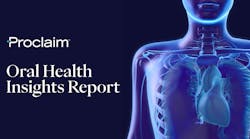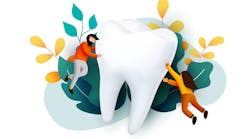Report says millions of Americans lack access to essential oral health care
Millions of Americans are not receiving needed dental care services because of "persistent and systemic" barriers that limit their access to oral health care, says a new report by the Institute of Medicine and National Research Council. To remove these barriers -- which disproportionately affect children, seniors, minorities, and other vulnerable populations -- the report recommends changing funding and reimbursement for dental care; expanding the oral health work force by training doctors, nurses, and other nondental professionals to recognize risk for oral diseases; and revamping regulatory, educational, and administrative practices.
"The consequences of insufficient access to oral health care and resultant poor oral health -- at both the individual and population levels -- are far-reaching," said Frederick Rivara, Seattle Children's Guild Endowed Chair in Pediatrics at the University of Washington School of Medicine, Seattle, and chair of the committee that wrote the report. "As the nation struggles to address the larger systemic issues of access to health care, we need to ensure that oral health is recognized as a basic component of overall health."
The report says that economic, structural, geographic, and cultural factors contribute to this problem. For example, approximately 33.3 million people live in areas with shortages of dental health professionals. In 2008, 4.6 million children did not obtain needed dental care because their families could not afford it. And in 2006, only 38 percent of retirees had dental coverage, which is not covered by Medicare.
Click here to read a brief of the report.

